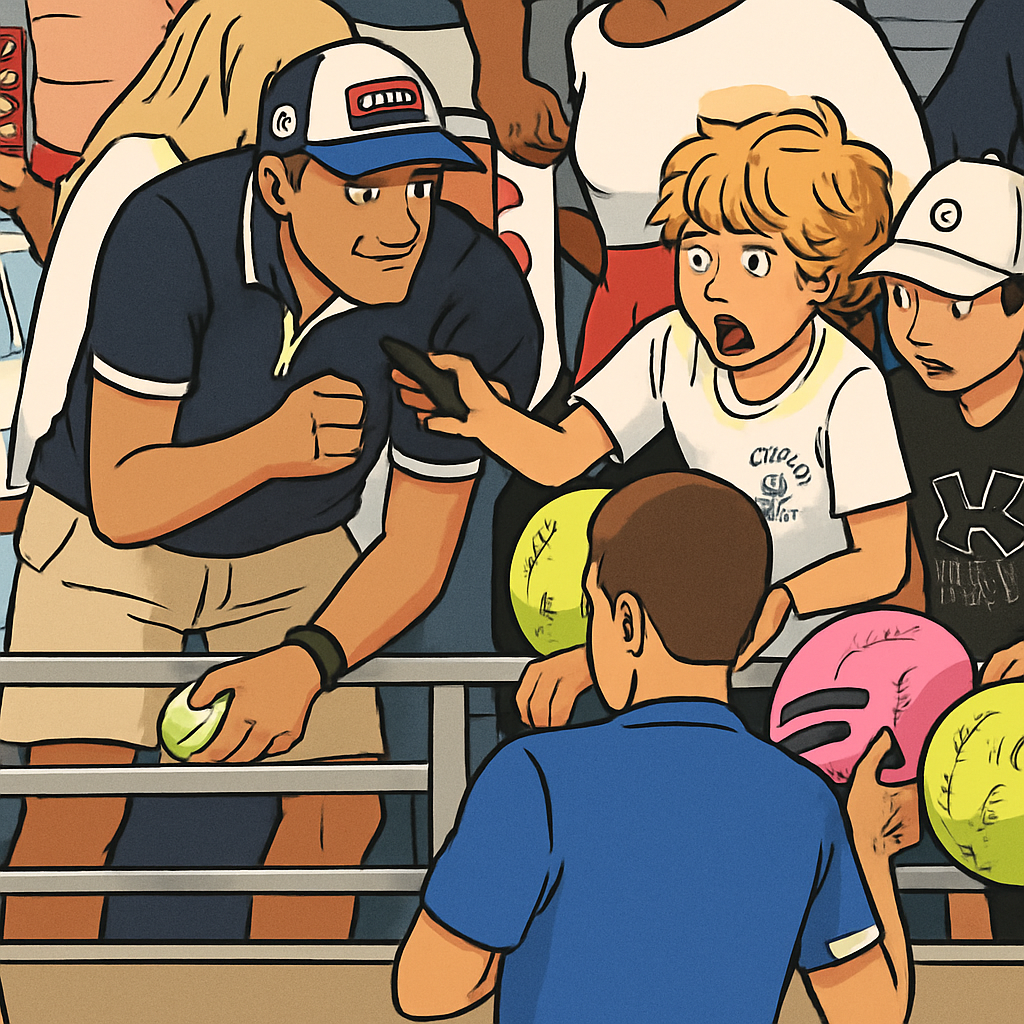NEW YORK — A moment of pure sporting joy at the US Open was shockingly overshadowed by an alleged act of entitlement, as a top chief executive has been accused of snatching a tennis cap meant for a young fan from the hands of Polish player Kamil Majchrzak. The incident, captured on video and spread rapidly across social media, has ignited a firestorm of criticism and led to a targeted online campaign against the executive's firm.
The controversy erupted on Court 11 following one of the biggest upsets of the tournament's early rounds. World No. 177 Majchrzak, a qualifier, had just completed a monumental five-set victory over ninth-seeded Karen Khachanov, a former semi-finalist. The match, a 4-hour and 37-minute marathon thriller, represented the most significant win of the 29-year-old Pole's career. Filled with emotion and wanting to share the moment with the fans who supported him, Majchrzak approached the stands.
A Gesture of Gratitude Turned Sour
Viral video footage shows the moments immediately after the match concluded. An elated Majchrzak, following tradition, removed his sweat-soaked match cap and walked toward a group of excited fans, including a young child who appeared to be reaching out for the souvenir. As the player leaned in to hand the child his hat, an arm belonging to a man in a suit jacket and sunglasses is seen reaching over the child, forcefully taking the cap directly from Majchrzak's grasp.
The man was quickly identified by online sleuths as Benjamin Brafman, a high-profile criminal defense attorney and the CEO of Brafman & Associates, P.C. The child, visibly dejected, is then seen being comforted by adults nearby. Majchrzak, looking momentarily confused by the interaction, eventually moves on. The entire exchange lasted mere seconds but was caught clearly by multiple fan cameras.
Public Outcry and Online Backlash
The video clip spread like wildfire on platforms like X (formerly Twitter) and TikTok, with viewers universally condemning the act. The public sentiment was captured in thousands of comments decrying the behavior as "entitled," "disgusting," and "a disgrace." The backlash quickly extended beyond social media outrage. Within hours, Brafman's prestigious law firm began receiving a flood of negative Google reviews, with many referencing the US Open incident and criticizing the CEO's character.
Tennis journalists and commentators also weighed in. Sports blogger David Kane posted, "A grown man in a suit just stole a souvenir from a child at the #USOpen. Let that sink in. Absolutely shameful behavior on what should have been a beautiful moment for Kamil Majchrzak and a young fan."
The Executive Breaks His Silence
After a day of mounting pressure, Benjamin Brafman issued a statement to the New York Post in an attempt to clarify the situation. His account, however, contrasted sharply with the visual evidence that had enraged the public. Brafman claimed the hat was never intended for the child and that his actions were misinterpreted. He stated, "The hat was tossed in my direction by the player, who is a friend of my client. I then gave the hat to a child who was sitting near me. Any suggestion that I took a hat from a child is completely false and frankly, ridiculous."
This explanation did little to quell the anger. Video analysts and fans were quick to point out that the footage shows Majchrzak making a deliberate, underhand motion directly toward the child's area, not a "toss" in Brafman's direction. Furthermore, Brafman is seen taking the hat from the player's hand, not catching a thrown item. In the video, the child he claims to have given the hat to is not visible, while the disappointed young fan is clearly seen.
A Pattern of Behavior?
Further digging by online commentators revealed that this may not be an isolated incident of poor fan etiquette. A Reddit user claiming to be a US Open regular posted, "I've seen this guy at the Open for years. He's always in the front row, always making himself the center of attention. This tracks completely." While this is anecdotal, it contributed to the narrative that the act was one of entitlement rather than a simple misunderstanding.
The Fallout and Broader Implications
The incident highlights the intense and immediate power of social media to hold individuals accountable in the court of public opinion. The key elements of the story include:
- The Viral Moment: Clear video evidence that was easily shareable and emotionally resonant.
- The Identifiable Perpetrator: A wealthy, high-profile individual in a position of power.
- The Sympathetic Victim: An innocent child and an underdog athlete.
- Tangible Consequences: Negative reviews impacting the executive's business.
For Kamil Majchrzak, the incident unfairly stole the spotlight from his extraordinary athletic achievement. His hard-fought victory, which should have been the headline, became a footnote to a bizarre controversy. He has not publicly commented on the altercation, likely preferring to focus on his next match. Meanwhile, the young fan, whose identity remains unknown, became the unwitting protagonist of a story about sportsmanship, privilege, and how a single moment can define a public persona.
The US Open, a tournament known for its passionate and sometimes rowdy crowds, now has an unexpected black mark on its 2024 edition. The event, which prides itself on creating memorable experiences for fans of all ages, will likely be forced to reckon with how such a blatant act of poor sportsmanship occurred courtside, in full view of hundreds of spectators and cameras. The story serves as a stark reminder that in the modern digital age, actions, no matter how small or quickly executed, rarely go unseen.

